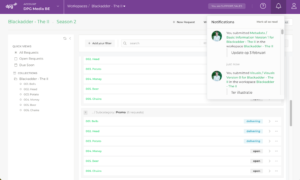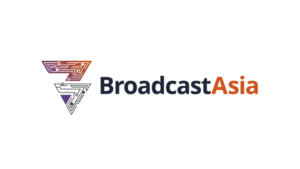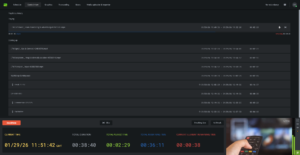Key issues identified alongside recommendations to improve recruitment
IABM has just released its first MegaTrends report on Talent Shortages in MediaTech. Based on extensive qualitative, quantitative and other research, the Talent Shortages in MediaTech report gives a comprehensive analysis of the causes of talent shortages in the MediaTech industry and also makes recommendations of ways to effectively tackle these shortages.
The Talent Shortages in MediaTech is the first of four regular new IABM Business Intelligence reports on key areas of the MediaTech industry. The other three reports, which will be released during the course of this year, are ESG: Tangible Sustainability, Supply Chain and Democratization.
The Talent report covers a wide range of topics including recruitment, competition for technical talent, pay and working conditions, strategy implementation, education and training, the impact of AI, collaborative initiatives and actionable recommendations for effectively tackling talent shortages. Regional variations in the MediaTech talent market, including challenges and solutions tailored for each region, are also explored in detail. Below is a selection of insights from the report. IABM members can access the full report on the IABM MediaTech Vantage business intelligence platform here.
- Talent shortages in MediaTech are caused by a range of factors including rapid changes in technology and convergence with other sectors increasing competition for technical talent.
- Shortcomings in education and training, salary differentials and challenging working conditions are also contributing to talent shortages.
- Limited awareness of career opportunities and entry pathways into MediaTech is also contributing to talent shortages. Educational initiatives, industry partnerships and outreach programs can help increase this awareness.
- Partnerships with educational establishments help to ensure that courses are kept up to date and align with the technical skills needed by the industry.
- Companies need to improve employee retention by fostering a positive working environment that includes flexible arrangements and opportunities for career development, as well as developing and enforcing policies to tackle unacceptable workplace behavior.
- Industry collaboration to develop mentorship networks, industry-driven internships, apprenticeship schemes and open learning resources can help secure a pipeline of technical talent into the sector.
- The sector needs to reach out more to underrepresented groups through collaborative Diversity, Equity and Inclusion initiatives and work to ensure that opportunities for training, development and support are made available to as many people as possible.
“This report is an essential piece of research which highlights the key factors underpinning the widely recognized shortage of new talent in the Media Tech industry,” said Stuart Ray, IABM Head of Skills and Development. “Drawing on a wide range of experiences from both IABM’s members and the wider media community, the report provides important analyses for the whole industry to respond and act on.
“While we have some incredible talent already within our industry, we have to be pro-active and passionate about encouraging more new people to join us. New talent brings new ideas, fosters innovation and creativity, and must be supported,” Ray concluded.
About IABM
Inform. Connect. Support.
IABM is the authoritative voice of the broadcast and media technology supply industry worldwide. Its wide range of services to members encompasses market research and intelligence, training, expert representation at standards bodies and broadcasting unions, executive networking opportunities, and preferential purchasing. A presence at every major broadcast tradeshow, IABM also provides a valuable channel for communication among broadcast manufacturers, government, and regulatory bodies. Additional IABM activities include awards programs for innovation and scholarships designed to stimulate the development of the broadcast and electronic media industries on an international basis. For more information, please visit www.theiabm.org.









